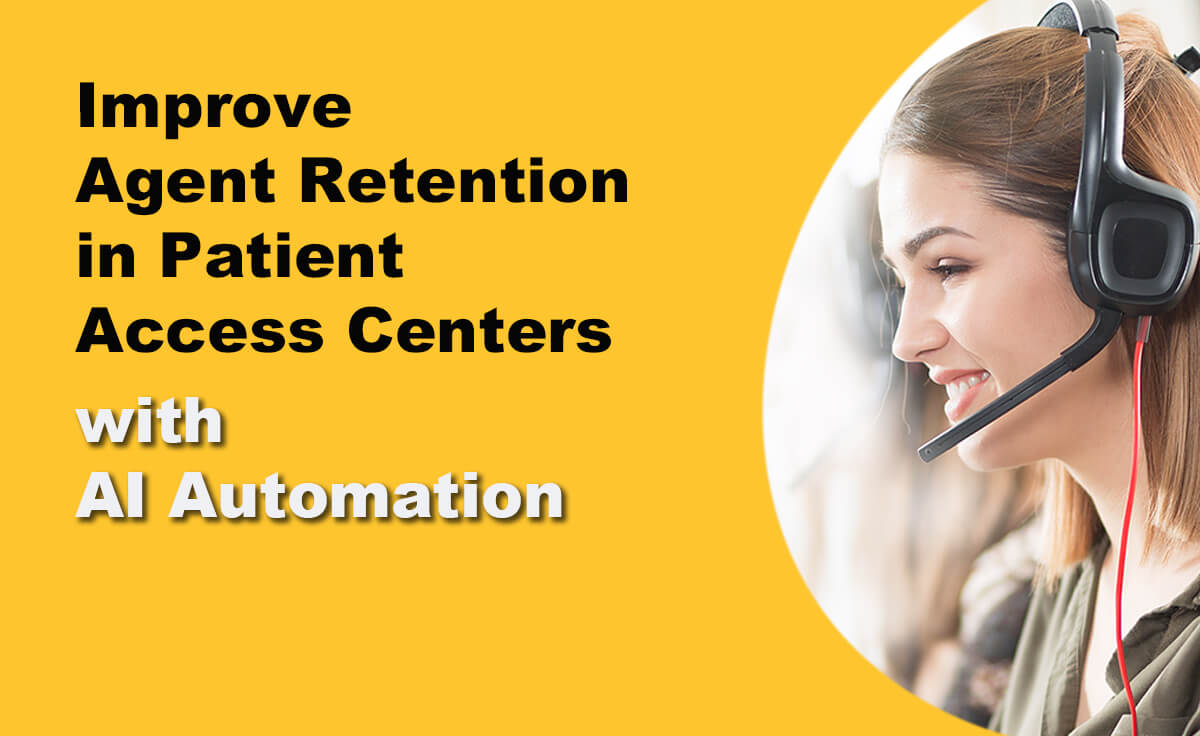Improve Agent Retention in Patient Access Centers with AI-Powered Automation
Rising labor costs and increased call volumes place enormous stress on patient access centers and their employees.
Repetitive tasks, insufficient training, taxing hours, and overwhelming workloads create stressful work environments for call center agents and accelerate employee burnout. When patient access contact centers suffer from poor agent retention, it translates to the quality of care that patients receive.
A Quality Assurance Training Connection (QATC) study puts turnover rates in the contact center industry between 30%-45%. When patient access centers have to constantly train new employees to fill vacancies, thorough training is sacrificed. This leaves new hires without the instruction they need to perform well, and patients without the expert support they deserve. Not only is the training process time-consuming for patient access centers, but it is extremely costly. According to the Human Resource Institute, it costs $10,000-$15,000 to replace a frontline employee. Contact centers get stuck in an expensive cycle of training, burnout, and turnover when they don’t leverage effective call management solutions to eliminate repetitive tasks, reduce calls that don’t belong, and put processes in place that mitigate calls from frustrated patients and family members. Conversational AI-powered automation improves agent retention by handling routine queries and tasks that quickly wear out human agents.
Agents should be working at the top of their skillset. Tasks like transferring calls and COVID screenings waste time and energy. AI-powered call management solutions in healthcare, such as intelligent virtual assistants (IVAs), offload these repetitive duties from live agents. Parlance IVA solutions for self-service replace antiquated communication in the voice channel, enabling callers to use their voices to easily reach people they need, access service, and complete routine tasks without waiting for assistance. Our modern IVAs leverage caller ID and electronic health record (EHR) data to assess what the caller might need and offer reasonable, corresponding options to quickly resolve their query. When self-service is frictionless, agent workload is reduced. Better agent utilization means patient access center staff can promptly support callers who need it, improving first call resolution (FCR) and patient experience. Lost revenue is reclaimed when hold times decrease and call abandonment declines. The result is a happier, more productive work environment with better agent retention and lower operational costs.
By Chris DeRizzo




